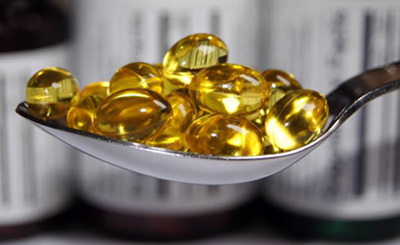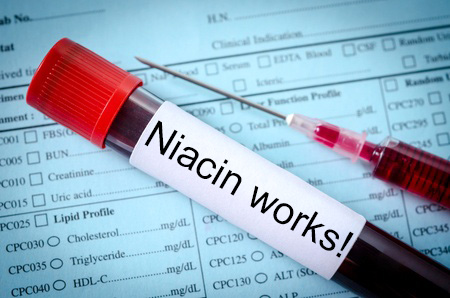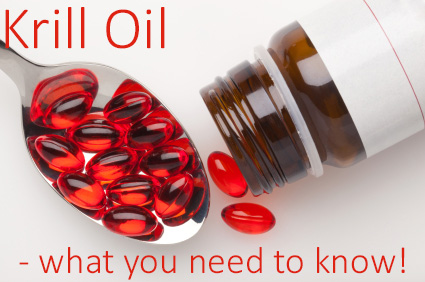Testosterone levels, testosterone therapy and all-cause mortality in men with type 2 diabetes - impact of PDE5 inhibitors and statins
- Published in Testosterone Replacement Therapy
- Written by Monica

The prevalence of testosterone deficiency is higher in men with type 2 diabetes than among non-diabetic men [1-6], and testosterone deficiency is associated with increased mortality.[7, 8]
Type 2 diabetic men often have dyslipidemia [9] and erectile dysfunction [10, 11], and hence statins and phosphodiesterase 5 inhibitors (PDE5I) are widely used in these men.
Here I summarize the results of a study published in International Journal of Clinical Practice, which investigated the impact of testosterone levels and testosterone therapy on mortality, and assessed if this was affected by concomitant statin and PDE5I use.[12]
Article Tags
Effects of Testosterone Treatment in Older Men
- Published in Testosterone Replacement Therapy
- Written by Monica

The so called double-blind randomized controlled trial (RCT) is accepted by medicine as the gold standard objective scientific methodology, and provides the highest strength of evidence for the effectiveness of a treatment.[1-4]
An accumulating body of evidence shows that treating hypogonadal men with testosterone therapy provides a number of wide-ranging benefits beyond mere relief of symptoms, including improvements in muscle mass, insulin sensitivity, fat mass (both total body fat and visceral fat), endothelial function, blood pressure, lipid profile and bone mineral density.[5, 6]
Recent clinical practice guidelines state that testosterone therapy is safe if treatment and monitoring are appropriately executed [7-9], and the totality of available evidence to date does not support alleged concerns regarding risk of cardiovascular disease [10] and prostate cancer.[11] Despite this, opponents state that the clinical benefits and potential long-term risks of testosterone therapy have not been adequately assessed in large RCTs, and that therefore a general policy of testosterone replacement in all older men with age-related decline in testosterone levels is not justified.[12]
To address the lack of large RCTs on testosterone therapy, the US National Institute of Health has funded The Testosterone Trials, which is a coordinated set of 7 large double-blind RCTs. Here I report the first results from The Testosterone Trials, which were released February 18, 2016.[13]
Article Tags
Effect of Fish Oil on Body Composition, Fat Burning & Energy Expenditure
- Published in Diet, Nutrition & Supplements
- Written by Monica

In previous articles I covered the effects of fish oil supplementation on fat loss and muscle growth:
Here I will present the results of a more recent study that investigated the effects of fish oil supplementation on body composition and metabolic outcomes.[1]
Ignore the new 2015-2020 Dietary Guidelines!
- Published in Diet, Nutrition & Supplements
- Written by Monica

On January 7th 2016, the new 2015 Dietary Guidelines for Americans were released. One would expect this to be a state-of-the art document with practical hands-on advice that will help people make better food choices and eat healthier. Not so! If you think the new 2015 Dietary Guidelines will tell you everything you need to know about what to eat and what not to eat, you will be greatly disappointed.
I would like to applaud the commentary by Dr. Katz “2015 Dietary Guidelines: A Plate Full of Politics”. Dr. Katz is the director of Yale University’s Prevention Research Center, and president of the American College of Lifestyle Medicine. His summary of the 2015 Dietary Guidelines is “a national embarrassment”.
In this article I will point our some issues that Dr. Katz raised, as well as add my own reflections based on avaliable scientific evidence. To make up for the glaring void of food recommendations, I will end with a practical list of foods you want to eat more of and those to avoid...
Article Tags
Does Sex Boost Testosterone Levels?
- Published in Testosterone - Men
- Written by Monica

Testosterone is popularly known as the “sex hormone”, with “sex” referring to both its masculinizing effects that gives rise to sex differences between men and women, as well as sex (the activity).
In terms of the latter, testosterone is well known for its libido boosting effect, in both men [1-4] and women [5-9] regardless of age.
Testosterone increases sex drive even in older women, and has thus been designated as the "infallible aphrodisiac" as early as 1940.[10]
But does it work the other way around also… Does sexual activity increase testosterone levels? Let’s see what research shows…
Article Tags
Effects of long-term testosterone treatment on weight loss and waist size in obese men - is TRT the next obesity treatment?
- Published in Testosterone Replacement Therapy
- Written by Monica

Testosterone, historically believed to be important only for male reproduction and sexuality, has over the past decades transformed from niche hormone to multi-system player.[1] A rapidly accumulating body of research is showing that testosterone is an important metabolic hormone with marked effects on energy metabolism and body composition.[2]
In USA, 36% of the adult population are obese (BMI >30), (affecting a similar proportion of men and women) [3], and obesity prevalence is escalating worldwide. According to the McKinsey Global Institute (MGI) report “Overcoming obesity: An initial economic analysis”, obesity is “one of the top three preventable social burdens (along with smoking and violence/war/terrorism) generated by human beings” imposing an estimated annual global direct economic burden amounting to 2 trillion USD.[4]
Obesity treatments with comprehensive lifestyle modification and/or drugs are notorious for their poor long-term efficacy and inability to achieve long-term weight loss maintenance.[5-9] Even with continued lifestyle treatment, significant weight regain occurs.[7, 9, 10] And obesity drugs have side effects which limit their long-term and widespread use. [11, 12] Therefore, new interventions are urgently needed to combat this alarming preventable threat to society.
Here I summarize a recent study that investigated the effects of long-term testosterone treatment – up to 8 years - on weight loss and waist size in 411 testosterone deficient men with obesity classes I-III.[13]
Article Tags
The “good” HDL cholesterol under attack! - Defending Niacin, aka vitamin B3
- Published in Diet, Nutrition & Supplements
- Written by Monica

Niacin confers tremendous beneficial effects on both lipids, inflammation and endothelial function. For more, see my previous article:
Despite this, two media attention grabbing studies - AIM-HIGH and HPS2-THRIVE - did not find any benefits of niacin supplementation in heart disease patients who were already on intensive statin treatment.
Here I will summarize these studies and expose their multiple flaws, which never made it to the headlines...
Article Tags
Niacin, aka vitamin B3 – what you need to know about potential side effects
- Published in Diet, Nutrition & Supplements
- Written by Monica

In previous articles I have talked about the multiple beneficial effects of niacin supplementation – on both lipids (blood fats and cholesterol) and non-lipid outcomes.
While flushing is often reported to be the main side-effect of niacin supplementation, the flush is a natural reaction to high-dose niacin, and is not dangerous. Thus, while some people may find it uncomfortable, it is not a harmful side-effect. For more on that, see “Niacin - How to Beat the Flush”
Other, potentially harmful side effects, are liver strain/damage, insulin resistance and blood glucose elevations, and uric acid elevations.[1] Here I will summarize what research shows on the severity of these side effects, and whether it is something you should worry about…
Article Tags
Critical Update of the 2010 Endocrine Society Clinical Practice Guidelines for Hypogonadism
- Published in Testosterone Replacement Therapy
- Written by Monica

In 2010, the Endocrine Society published a Clinical Practice Guideline “Testosterone Therapy in Adult Men With Androgen Deficiency Syndromes”, which addressed important issues regarding the diagnosis and treatment of male hypogonadism.[1]
Since publication of this Guideline, several high-quality trials have been conducted, warranting an update of the 2010 recommendations in several areas, especially that of testosterone therapy in men with the metabolic syndrome, type 2 diabetes, sexual dysfunction, and frailty.
In addition, many of the previously stated contraindications to testosterone therapy – including severe lower urinary tract symptoms (LUTS) and untreated obstructive sleep apnea (OSA) - have been reexamined in recent trials.
Here I summarize the results of a recent systematic analysis of the latest high-quality studies, which call for some important updates of the 2010 Endocrine Society Clinical Practice Guidelines for Male Hypogonadism.[2]
Article Tags
Krill Oil - what you need to know
- Published in Diet, Nutrition & Supplements
- Written by Monica

Krill oil is becoming increasingly popular, and many people use it as an alternative to fish oil, since both provide the long-chain “marine” omega-3 fatty acids EPA and DHA.
In addition, krill oil has some unique properties, and marketing claims about krill oil’s purported superiority over fish oil abound, centering on the following:
- Krill oil provides some of the EPA and DHA in phospholipid form, which has been suggested to be absorbed more effectively.
- Krill oil contains astaxanthin, a carotenoid with health promoting effects.
- Krill oil contains the essential nutrient choline.
- There are supposedly fewer contaminants in krill oil than fish oil.
- Krill oil supposedly does not cause any fishy burping or other gastro-intestinal side effects.
In this article I will summarize the research on each of these points, and critically evaluate the related marketing claims...



